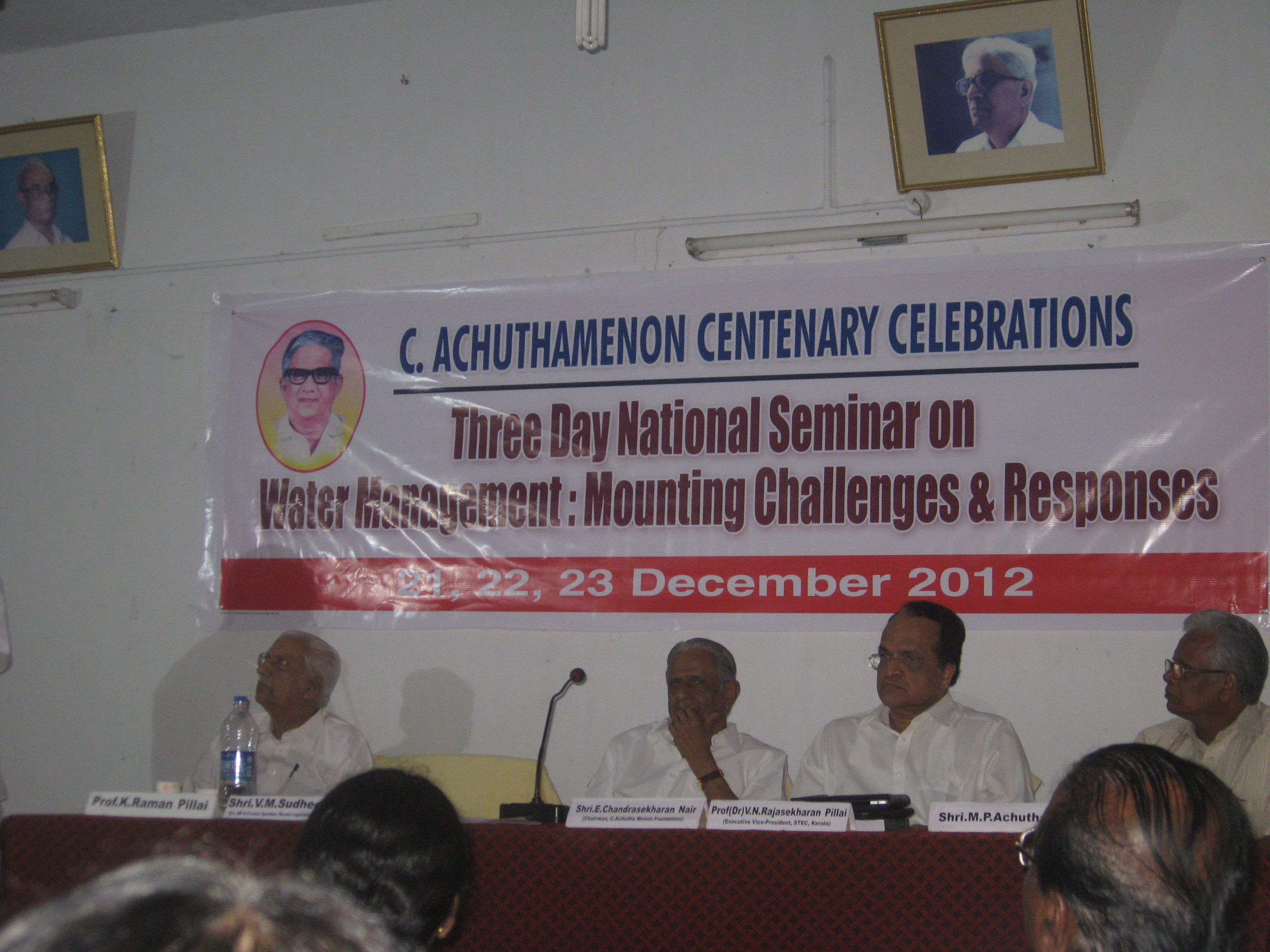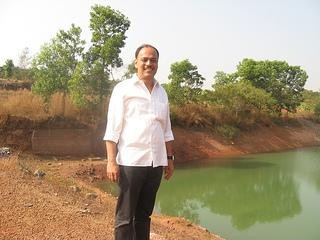Rainfall and other forms of Precipitation
Call for Participation-Ecosystems for Life Media Fellowship, International Union for Conservation of Nature (IUCN), July-December 2013
Posted on 04 Jun, 2013 04:11 PMOffered by
A village creates magic…and a river!
Posted on 30 Apr, 2013 09:23 AMUfrenkhal – the village
Driving towards Ufrenkhal, a village in Pauri Garhwal (Uttarakhand), I see a lush, green mountain covered with deodar, banj and utees trees. Little did I realize that this diverse and dense forest, which is alive with wildlife, is very new. 40 years ago, this vast area was a firing range!

Why participatory groundwater management is no longer an oxymoron: The story of Randullabad
Posted on 15 Apr, 2013 06:04 PMIndia is heavily dependent on groundwater use. Domestic use, agriculture and industry all rely on groundwater extracted by means of pumps, wells and tanks. This dependence is illustrated by falling groundwater levels. Frequently, this overuse and consequent decline trigger conflicts.

Reviving dying springs in Sikkim
Posted on 28 Mar, 2013 11:48 AMPure and beautiful, mountain springs confer lives. With change in climate conditions and rainfall patterns, rural habitations in Sikkim face drinking water shortages. Many of these springs are drying up or their discharge declining. But there is hope at the end of an endeavour, where science, government and community come together to revive springs of their local region.

Water management - Mounting challenges and responses - A report on the three day seminar jointly organised by KSCSTE and C Achutha Menon Foundation, Trivandrum from the 21st to the 23rd December 2012
Posted on 14 Mar, 2013 10:12 PMThis three day national seminar was jointly organised by the Kerala State Council for Science, Technology and Environment (KSCSTE), Thiruvananthapuram, and the C Achutha Menon Foundation (AMF), Thiruvananthapuram, Kerala and included presentations and discussions on a range of water related themes such as water scarcity, water conservation, commercialisation of water, water conflicts and water management.
The seminar aimed at creating awareness and triggering a dialogue among scientists, academicians, researchers, activists, as well as lay people on the emerging challenges related to water resources, water quality and water conservation in the state of Kerala. The seminar was inaugurated by Shri V M Sudheeran, Ex MP and former speaker, while Dr Rajasekaran Pillai, Executive Vice President KSCSTE, delivered the keynote address with the felicitation by Shri M P Achuthan, MP.
The seminar included discussions under five different themes related to water issues that included water scarcity, water conservation, commercialisation of water, water as an new area for conflicts and water management.

The three day seminar on water management at the Achuta Menon Foundation, Trivandrum, Kerala
Changing climate, changing lives - A film on the impact of climate change on agriculture in Dhulikhel, Nepal
Posted on 09 Mar, 2013 12:38 PMThe story of climate change has been hijacked by snow and ice.
A source today, scarce tomorrow: Educational videos on global freshwater problems
Posted on 09 Mar, 2013 09:10 AMWhat are the water sources and where is the water utilized ? The short videos below aim to educate us on simple facts of freshwater sources and scarcity....
Reviving a lake transforms 120 acres of barren land into a self-sufficient organic farm: The story of Rajesh Naik and Oddoor farms, Mangalore, Karnataka
Posted on 05 Mar, 2013 03:39 PMA visit to Oddoor farms near Mangalore, Karnataka, provides an inspiring example of the efforts made by Rajesh Naik ji to transform 120 acres of barren land into a lush green farm through his persistent efforts of creating a two acre and fifty feet deep lake, which has not only transformed the surrounding area, but has also helped in improving the water table in the surrounding village, besides helping in the development of a self sufficient organic farm and a dairy.
Oddoor farms, around 25 kilometres away from Mangalore city is a great example of a very successful effort made by Rajesh Naik ji who has transformed 120 acres of barren land into a self sufficient organic farm by developing a 50 feet lake on two acres of land. The journey has been a long one and not without its share of challenges, but persistence and constant optimism and hard work to overcome challenges has reaped results in the last twenty years, informs Rajesh Naik ji.

Rajesh Naik ji near the lake he has developed at the Oddoor farms near Mangalore
Strategies for achieving environmental sustainability in rural development - A report by United Nations Development Programme
Posted on 23 Feb, 2013 10:22 AMThis report by the United Nations Development Programme (UNDP) presents strategies for inclusive rural development embodying the principles of environmental sustainability. It recommends measures needed to achieve green, including measuring and tracking, the use incentives and the building of capacities. It also contains a number of case studies showing how green results can be achieved.
Some strategies for managing groundwater by Aditi Mukherji, IWMI
Posted on 22 Feb, 2013 09:53 AMGroundwater is essential for India's agricutural economy. However, there is a large variation in the groundwater resources of each region. Some regions are already over-exploited, while others can still tolerate more withdrawal. In her blog 'Waterscapes', Aditi Mukherji discusses the need for regional strategies to manage groundwater economy.






